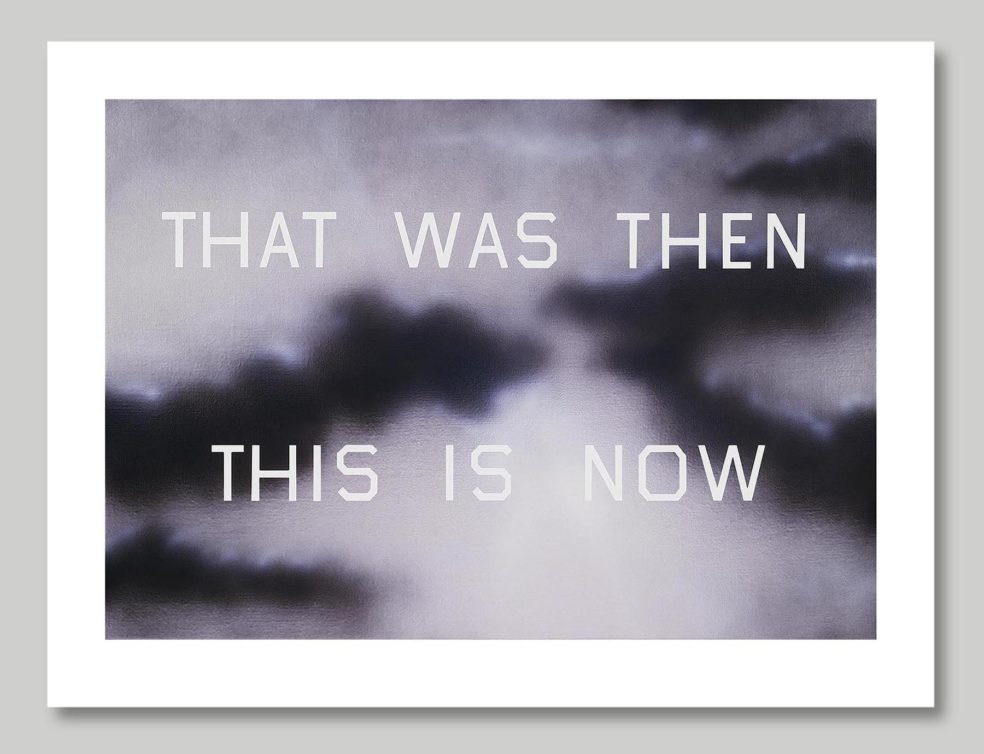Indisputably one of the most iconic American artists of the 20th century, Ed Ruscha has built a formidable body of work by staking a claim on the deceptively simple intersection of text and image, superimposing elliptical phrases (or, often, single words) over West Coast landscapes to create paintings that can be read instantaneously yet evade easy understanding. A pioneer of the 1960s Los Angeles art scene as part of the famed Ferus Gallery—alongside artists like Robert Irwin and Billy Al Bengston—Ruscha’s embrace of Hollywood vernacular and the open Western road have tied him as closely to the identity of L.A. art as Jackson Pollock is with that of New York.
Coming to California in 1956 at the age of 18, Ruscha intended to become a commercial painter but found himself drawn to fine art, over time being shaped by three galvanizing influences: Marcel Duchamp, Pop art, and the movies. Meeting Duchamp when the Pasadena Art Museum hosted the French conceptual artist’s first U.S. show, Ruscha was especially affected by his use of “readymade” objects and imagery, rendered unfamiliar through unexpected titles or text. Warhol’s Campbell’s Soup can paintings, meanwhile, were shown for the first time at the Ferus Gallery in 1962, opening up new vistas for Ruscha. Movies, then, provided another inspiration through their use of title cards, placing graphic text over filmic shots—”The End,” for instance—for maximum impact.
Ruscha began his famous series of word paintings in the 1960s, depicting various views of the Hollywood sign and the logos of studios like 20th Century Fox, but also roadside views like the Standard Oil stations dotting L.A.’s freeways. Over time these became more abstracted, pinning ambiguous, free-floating phrases (“Wall Rockets” is a famous example) to natural vistas, scenes of highways, or monochrome backgrounds. Beginning in about 1980, the artist began using a sharp font he designed himself, called Boy Scout Utility Modern.
A master printmaker who also works across the mediums of books, drawing, photography, and even film—in 2009 he starred in a movie directed by the artist Doug Aitken—Ruscha has been an influence on a staggering array of artists, including Stephen Shore, Christopher Wool, and Anselm Kiefer. His work has been featured in dozens of exhibitions around the world, including Ed Ruscha: 50 Years of Painting at London’s Hayward Gallery (2009), Ed Ruscha: Made in Los Angeles at Madrid’s Reina Sofia in 2002, a 2000 retrospective at the Hirschhorn Museum and Sculpture Garden, a survey of his works-on-paper at the J. Paul Getty Museum in 1998, and a 1982 retrospective that traveled to the Whitney Museum. In 2005 he represented the United States at the 51st Venice Biennale, and in 2009 he received a National Arts Award.
